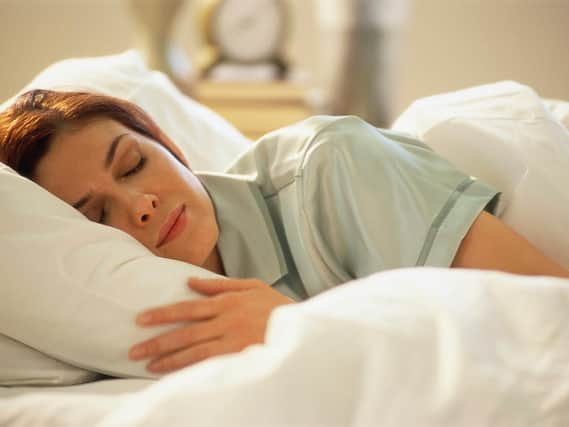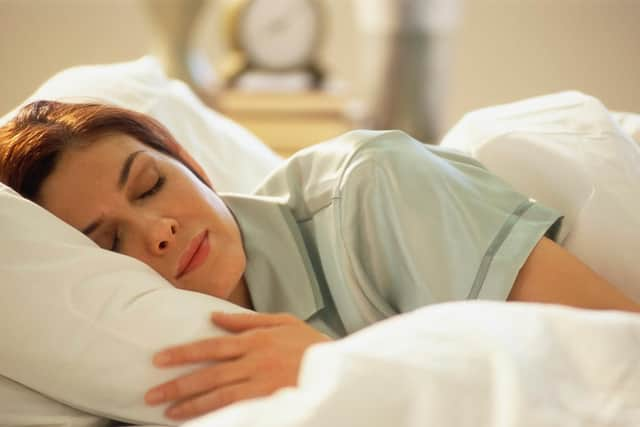Sleeping too much makes you '˜more likely to die young', research suggests


Researchers found that people who slept for 10 hours were 30 per cent more likely to die prematurely than those who slept for eight.Â
The research has been published in the Journal of the American Heart Association and it looked at data from 74 studies involving more than three million people.Â


Advertisement
Hide AdAdvertisement
Hide AdThe study also found that staying in bed for more than 10 hours a night was also linked to a 56 per cent increased risk of death from stroke and a 49 per cent increased risk of death from cardiovascular disease.
Poor sleep quality was also found to be associated with a 44 per cent increase in coronary heart disease, according to the research.Â
Researchers said their study suggests abnormal sleep could be '˜a marker of elevated cardiovascular risk' and said GPs ought to ask questions about sleeping patterns during appointments.
Lead researcher Dr Chun Shing Kwok, of Keele University's Institute for Science and Technology in Medicine, said: '˜Abnormal sleep is a marker of elevated cardiovascular risk and greater consideration should be given in exploring both duration and sleep quality during patient consultations.
Advertisement
Hide AdAdvertisement
Hide Ad'˜There are cultural, social, psychological, behavioural, pathophysiological and environmental influences on our sleep such as the need to care for children or family members, irregular working shift patterns, physical or mental illness, and the 24-hour availability of commodities in modern society.'
The study, which also involved researchers from the universities of Leeds, Manchester and East Anglia, said the research was limited as duration of sleep was self-reported and that underlying mental or physical conditions may have had an impact on '˜extreme sleep patterns'.